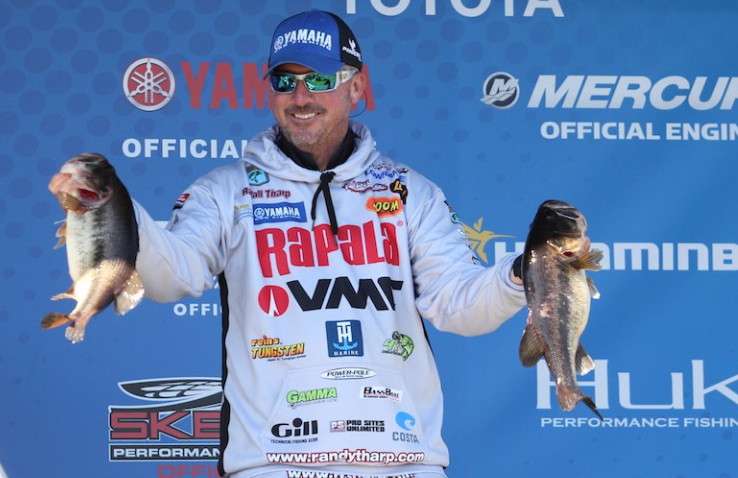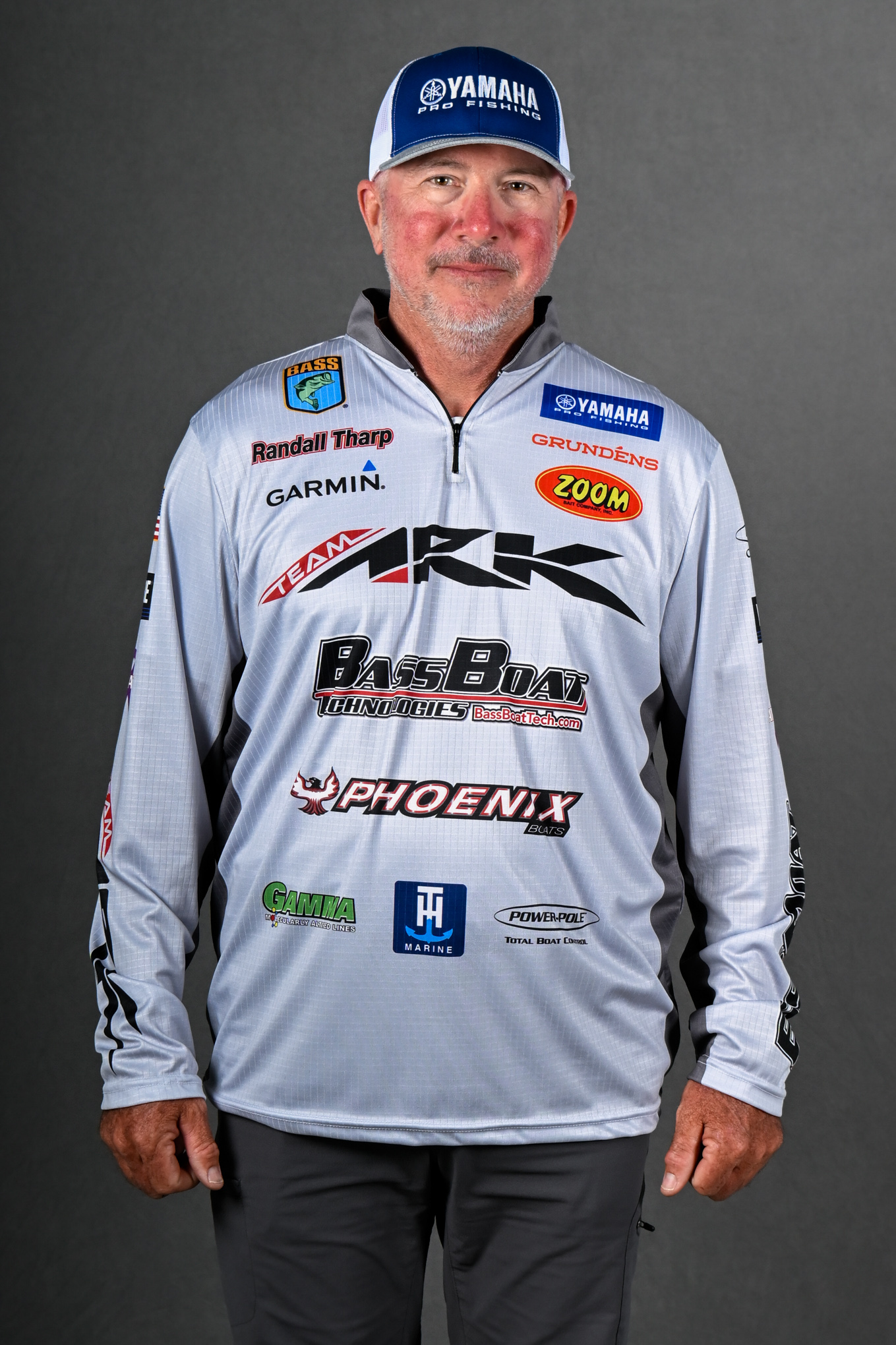
Sara and I spent two days driving from Winyah Bay to Bull Shoals for the next Bassmaster Elite Series event. I don’t enjoy the driving at all, but I am thankful for the time it allows me to make phone calls and handle the business side of what I do. It also allows me time to think about the past event and reflect on my performance as well as the way everything played out.
I am having more and more trouble these days determining what’s right and what’s wrong. It sounds simple, right? Well, for me and the sport of tournament bass fishing, it’s not quite that easy. I have been struggling with this particular topic for quite some time.
There were 109 “Elite” anglers competing last week at Winyah Bay. There were 109 different people there with a common goal. That goal is to win and be successful. We all want to win, right? What would you do to catch a bass and be successful on the sport’s biggest stage? What one angler considers the right and ethical way to achieve this goal is not necessarily shared by the group as a whole.
I am not going to go down the information road that has been the topic of debate lately. I don’t want to talk about all of the waypoints and what anglers call “getting help.” Hackney covered that one pretty well in his blog, and anyone that knows anything about me knows exactly how I feel regarding that subject. My struggle with right and wrong occurs after the derby starts. Here are a few stories from my career I will share so you will know what I am talking about.
My first exposure to the big stage was the 2011 Bassmaster Classic. I had fished big derbies before but never the Classic against the sport’s big guns. For those of you that don’t remember, it was in New Orleans at the Delta and was won by none other than KVD. I spent a lot of time preparing prior to the cut off. Venice, Bayou Black and Cataouatche were the areas that I focused on, and I was sure that the winner would come from one of these areas. To make a long story short, I was the only boat in the Classic field that ran to Bayou Black. I thought that I had a decent first day until I got back and saw the weights from Cataouatche. It was clear to me and every other angler competing that week that Cataouatche was where it was going to go down and eventually be won.
There were two groups of anglers in that event. The Venice group and the Cataouatche group, and then me – all alone in Bayou Black. On the second day I was faced with a decision: Go back to Bayou Black where I was 100 percent sure I couldn’t win and possibly miss the 25 cut, or I could go to Catouache where the derby was going to be dominated and eventually won. I decided to go back to Bayou Black. Why? At the time, I felt it was the right thing to do. I played the hand I was dealt, and I lost. I would have to and can live with that. What shocked me at the time was the number of guys that played their hand in Venice on Day 1 – then fished around the leaders the final two days in Cataouatche. The word I used to describe these guys at the time was “poacher.”
Let’s fast forward a bit to this year. At the St. Johns, I ran to my starting spot on Lake George and was not surprised to see a boat exactly where I was going to start. There were a couple of big ones lying there Wednesday afternoon, and I knew I would probably not be the only lucky one to have found them. I ran about a half a mile further and went through a cut and fished my way towards the meat. I met Brandon Lester halfway there, and he confirmed that the big ones were already in his livewell. He led the tournament on Day 1 and I was in fourth.
On Day 2 I was prepared, and I knew exactly what was going to take place. The unique thing about the area Brandon and I shared is that it was a trough protected by a 2-inch deep sandbar covered in eelgrass. I got stuck four or five times trying to access it in practice before I found the three ditches leading into it. We were seen by half of the field on Day 1, and I am still laughing at the three boats I saw beached on that sandbar on Day 2 of the event! Do you think any of them found that area on their own or practiced there at all?
At Winyah Bay it was more of the same. I had a terrible practice and committed my tournament to an area where I had a single bite in practice. I liked the tide there for the tournament days, so I felt it was my best bet. It was 60 miles from takeoff, and again, I had a solid first day. During that first day at that location I saw one other tournament boat. It happened to be an angler I have a great deal of respect for. He fished close to me in the same area but never got on my juice. Day 2 rolls around and I had five boats in the same area where the first day I had only one. Even the angler that was there on the first day decided to come over and help me out on what I considered my juice.
While this behavior might come as a shock to some of you, I can guarantee it does not surprise any of my fellow pros. No matter how you choose do your job, I don’t think you will find one pro on the Elite Series who will deny that some form of this happens every day we are on the water. I never said a word in any of the examples I listed above, and they are pretty mild cases of what happens daily. I have spoken up in other cases where I was 100 percent sure I was being stabbed in the back and feel that is the best way to address the situation before it escalates.
I used the word “poacher” earlier, and before anyone that reads this decides to judge me or anyone else, please listen because I have a few more things to say. This is a lot more complicated than you might think at first.
The majority of the guys on the Elite Series pay their bills and feed their families with the income generated from their fishing business. A few run their businesses profitably, but some do not. Anyone capable of doing simple math should be able to see the financial burden that trying to fish for a living creates.
In addition to the pressure we each put on ourselves individually, there is added pressure put on us from our sponsors to succeed, and this complicates things a bit more. Just like the fishermen, some companies hold themselves to a higher standard – while to others it’s about the bottom line, money. As long as a pro makes money for them, some companies don’t seem to mind how he chooses to do his job.
I have been doing this long enough, and I know how important each and every tournament day is. I don’t agree with or like the level that some of my competitors are willing to go to in order to get the job done, but I do understand it better now than I used to. I am not accusing any of my competitors of breaking any rules, and I don’t think it’s the responsibility of B.A.S.S. to make a rule concerning this issue.
The ironic part of all of this is finding fish is not hard for the best at this game. The challenge for them is getting everyone else out of their way so they can catch them.
I called another Elite pro to discuss this issue and he gave me this analogy. There is a factory worker who falls on hard times and loses his job so he robs a bank to feed his family. To me, robbing the bank is a bad decision, but that doesn’t necessarily make him a bad person. Right or wrong? I am still not sure. Let your conscience decide…

